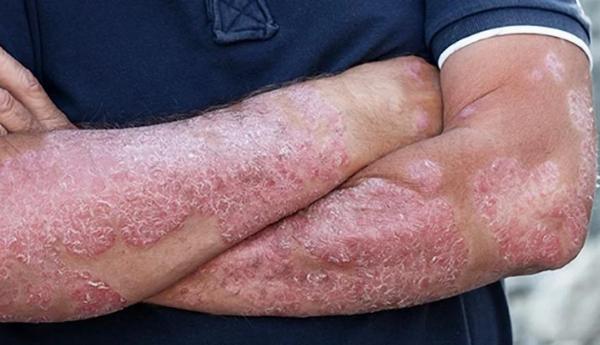Psoriasis Treatment for Tough Cases: What to Try Next

Strong 8k brings an ultra-HD IPTV experience to your living room and your pocket.
Psoriasis is a chronic autoimmune condition that causes rapid skin cell turnover, leading to thick, scaly patches on the skin. For many, the condition can be managed with conventional treatments, but for those facing tougher cases, finding the right approach can be more challenging. This blog will explore advanced options and strategies for effective psoriasis treatment in difficult situations, providing you with a comprehensive guide to navigating these tough cases.
Understanding Psoriasis and Its Challenges
What is Psoriasis?
Psoriasis is an autoimmune disorder that accelerates skin cell growth, resulting in thick, red patches covered with silvery scales. These patches, also known as plaques, can appear anywhere on the body and are often itchy and uncomfortable.
Why Some Cases Are Tougher
In more severe cases, psoriasis may not respond well to standard treatments. Factors such as genetic predisposition, the presence of other health conditions, or poor adherence to treatment can contribute to these challenging cases.
Conventional Treatments and Their Limitations
Topical Treatments
Topical treatments, including corticosteroids and vitamin D analogues, are often the first line of defense against psoriasis. They help reduce inflammation and slow down skin cell turnover. However, in severe cases, these treatments might not provide sufficient relief or may cause side effects with long-term use.
Phototherapy
Phototherapy involves exposing the skin to ultraviolet light under medical supervision. It can be effective for moderate to severe psoriasis but may not be suitable for everyone. Regular sessions are required, and there is a risk of skin damage with prolonged use.
Systemic Medications
Systemic medications, such as oral retinoids and immunosuppressants, work throughout the body to control psoriasis. While these can be effective, they come with potential side effects and require careful monitoring.
Exploring Advanced Psoriasis Treatments
Biologics
Biologics are a newer class of systemic medications that target specific immune system components involved in psoriasis. These treatments are administered through injections or infusions and can be highly effective for severe cases that do not respond to other therapies.
Benefits: Biologics can offer significant improvements in skin clearance and quality of life.
Considerations: They are typically reserved for severe cases and can be expensive. Regular monitoring is necessary to assess effectiveness and manage potential side effects.
Targeted Therapies
Targeted therapies focus on specific pathways in the immune system responsible for psoriasis. These oral medications are designed to block particular proteins involved in the inflammatory process.
Benefits: Targeted therapies can offer relief from symptoms with potentially fewer side effects than traditional systemic medications.
Considerations: They may not be suitable for everyone and require ongoing evaluation for effectiveness.
Combination Therapy
Combining different treatments can sometimes yield better results, especially in tough cases. This approach might involve using a combination of topical, systemic, and biologic treatments to achieve optimal control of symptoms.
Benefits: Increased flexibility in managing symptoms and potentially better overall outcomes.
Considerations: Requires careful coordination and monitoring to avoid adverse interactions and manage side effects.
Integrative Approaches to Psoriasis Treatment
Lifestyle and Dietary Modifications
Certain lifestyle changes and dietary adjustments can complement traditional treatments and help manage psoriasis more effectively.
Diet: Incorporating anti-inflammatory foods such as omega-3 fatty acids, antioxidants, and low-glycemic index foods can support overall skin health.
Lifestyle: Stress management techniques, such as meditation and yoga, can help reduce flare-ups, as stress is a known trigger for psoriasis.
Alternative Therapies
Some people find relief from psoriasis symptoms through alternative therapies such as acupuncture, herbal supplements, or specialized skincare routines.
Benefits: These approaches can offer additional symptom relief and improve overall well-being.
Considerations: Alternative therapies should be used with caution and ideally in conjunction with conventional treatments. Consulting with a healthcare provider is recommended to ensure safety and effectiveness.
Managing Psoriasis During Flare-Ups
Recognizing Triggers
Understanding and managing psoriasis triggers can help prevent flare-ups and manage symptoms more effectively. Common triggers include stress, infections, certain medications, and environmental factors.
Strategies: Identifying personal triggers and implementing strategies to avoid them can significantly reduce the frequency and severity of flare-ups.
Developing a Personalized Treatment Plan
Creating a tailored treatment plan with the help of a healthcare professional can address the unique challenges of severe psoriasis. This plan should incorporate a combination of treatments and lifestyle adjustments based on individual needs.
Benefits: A personalized approach ensures that all aspects of the condition are addressed and can lead to more effective management of symptoms.
Monitoring and Adjusting Treatment
Regular Follow-Up
For tough cases of psoriasis, regular follow-up with a healthcare provider is essential to monitor progress and adjust treatments as needed. This helps ensure that the chosen therapies are effective and minimizes the risk of adverse effects.
Benefits: Ongoing evaluation allows for timely adjustments to treatment plans and enhances the overall management of the condition.
Tracking Symptoms and Outcomes
Keeping a detailed record of symptoms, treatments, and outcomes can provide valuable insights into what works best for managing psoriasis. This information can be used to make informed decisions about treatment adjustments.
Benefits: Tracking helps in understanding treatment efficacy and identifying any potential side effects or issues early on.
Conclusion
Managing tough cases of psoriasis requires a multifaceted approach that includes conventional treatments, advanced therapies, and integrative strategies. By exploring and combining various options, individuals with severe psoriasis can find effective solutions that improve their quality of life. Always work closely with a healthcare provider to develop and adjust a personalized treatment plan, and consider lifestyle modifications to support overall skin health. With the right approach, even the most challenging cases of psoriasis can be managed effectively.
Note: IndiBlogHub features both user-submitted and editorial content. We do not verify third-party contributions. Read our Disclaimer and Privacy Policyfor details.


